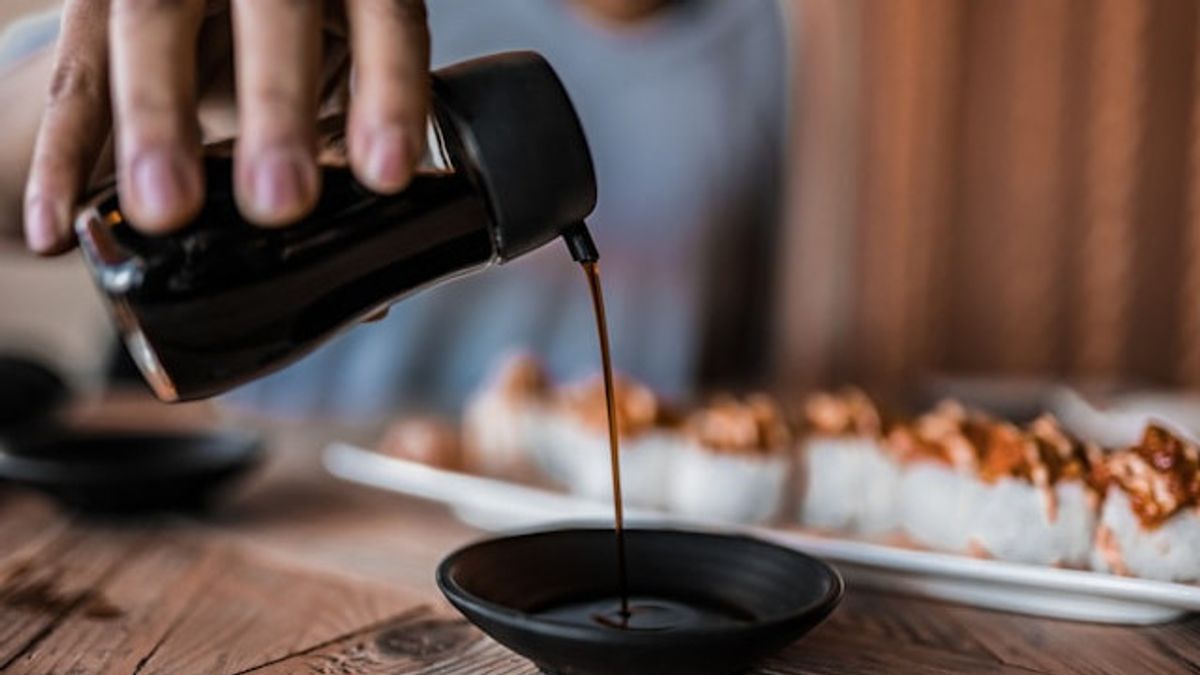YOGYAKARTA - Talking about soy sauce sometimes we like to be confused with different types and names from each country. Well, this time we will find out the difference between soy sauce and soy sauce. Listen until it's finished, yes!
Two of the salted spices that are often used are shoe or soy sauce and regular salted soy sauce. Although both of them look similar, there are significant differences in composition, manufacture, and characteristics of taste and aroma. Let's explore the difference between shoyu and ordinary salted soy sauce.
I. Color and Appearance
Soy Sauce: Shoyu has a variety of colors depending on its type. Koikuchi shoyu has dark brown color, on the other hand, usukuchi shoyu tends to be brighter. Tamari shoyu has a blacker and richer color. This color often provides clues about the character of the taste and proper use.
Ordinary Salty sauce: Usually salted sauce tends to have a more fluid and uniform color, usually patterned with brownishness. This color also reflects the differences in the manufacture and the basic ingredients used.
II. Basic Materials and Making
Soy Sauce: Shoyu, also known as Japanese salted soy sauce, is made of soybean basic ingredients fermented along with wheat or wheat flour, and salt. This fermentation process functions in producing flavors and aromas typical of shoyu. There are various types of shoyu with different ratios of materials, such as koikuchi, usukuchi, tawari, and others.
Ordinary Salty sauce: Salty sauce is made from salt and water base ingredients, without going through a fermentation process. Generally, regular salted soy sauce has a more non-variant flavor in terms of salty and less has a layer of flavor complexity produced by the fermentation process.
III. Flavor and Aroma
Soy Sauce: The taste of shoyu is rich in nuances, including deep savory, salty, and umami. The aroma produced from the fermentation process provides an additional dimension on the dish. Each type of shoyu has a unique taste and aroma, which can influence the character of the dish used.
Ordinary Salty sauce: Usually salted sauce tends to have a taste that focuses more on salt, without a layer of complex taste as encountered in shoyu. The aroma of ordinary salted soy sauce is generally simpler and less deep than shoyu.
SEE ALSO:
IV. Use in cooking
Soy Sauce: Shoyu is often used in Japanese dishes, a kind of sushi, sauce, and grilled dishes. The various types of shoyu can be chosen according to the characters of the dish you want.
Ordinary Salty sauce: Salty sauce is usually used in Southeast Asian, Chinese cuisine, and various international dishes. Because simpler taste, regular salted soy sauce is often a seasoning in dishes.
In conclusion, although both of them have salted elements, shoyu and regular salted soy sauce have fundamental differences in basic ingredients, manufacture, taste, and aroma. The option between the two depends on the type of dish to be made as well as the characteristics of the desired taste. Mastering these differences can help improve the ability to cook and produce delicious and authentic dishes.
Talking about soy sauce not finished here, yes, to increase your insight, you also need to know what 4 Different Fishcaps and Asi Caps are.
So after knowing the difference between soy sauce and salted soy sauce, see other interesting news on VOI.ID, it's time to revolutionize news!
The English, Chinese, Japanese, Arabic, and French versions are automatically generated by the AI. So there may still be inaccuracies in translating, please always see Indonesian as our main language. (system supported by DigitalSiber.id)


















